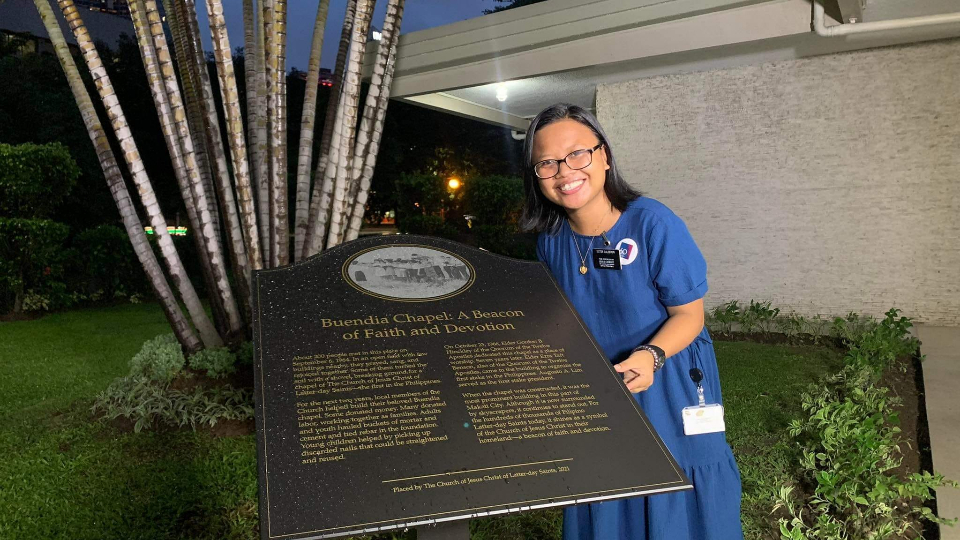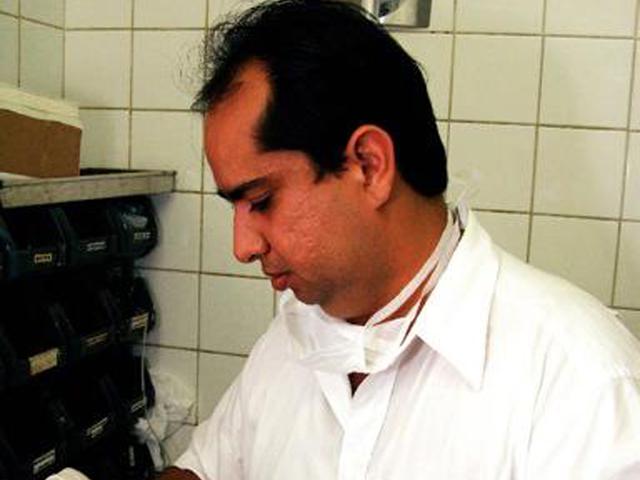(Interested applicants may jumpstart their PEF journey through its website at portal.pef.churchofjesuschrist.org)
Princess May Calderon, a working student from Catanduanes, is on a mission to become a licensed accountant. She is finishing her last year in accountancy school in Manila while working full-time to support herself and her family.
After serving a full-time mission as a young service missionary at the Philippines Area Office, Princess held dearly her dream of being a certified public accountant (CPA) and going to law school.

pef-pic-14.jpg
Princess May Calderon, a working student and recipient of the Perpetual Education Fund program, is aiming to become a certified public accountant in early 2025. Before attending Accountancy School, she served as a young service missionary at the Philippines Area Office from 2021 to 2023.2024 by Intellectual Reserve, Inc. All rights reserved.However, becoming an accountant is not an easy path in the Philippines. After enduring four grueling years of college classes, accountancy graduates must prepare for and pass a Board Examination to obtain a license before they can practice.
Moreover, higher education is not cheap in the Philippines. Recent government data show that quality higher education can burden college students like Princess with costs between PHP 60,000.00 to PHP 300,000.00 per year for tuition and miscellaneous fees alone, not to mention the costs of books, room and board, daily meals, and other expenses.
"The Perpetual Education Fund (PEF) became a bridge to fulfill my dream of becoming a CPA and to follow President Russell M. Nelson's counsel to continue my education in the best way I can," Princess shared.
“Though I waited for almost four years to receive this blessing, I feel that my faith has increased because I have gained a testimony that the Lord is always mindful of our righteous desires,” she added.
Princess refers to the continuous efforts of the Church of Jesus Christ of Latter-day Saints to support qualified students in the Philippines in achieving their higher education goals and becoming self-reliant.
The Perpetual Education Fund (PEF) loan program helps members of the Church of all ages obtain an education that leads to self-reliant employment. Since 2001, the program has touched the lives of more than 90,000 individuals worldwide. Through loan repayments and generous donations, the fund is expected to continue to lift individuals and families out of poverty and into self-reliance for decades.
In the Philippines, the Area Presidency has reiterated its call for more PEF applicants now that updates have been approved to help more people access better employment opportunities.
"To help more members of the Church gain access to educational opportunities, we are happy to announce several enhancements to PEF that are effective immediately. These include technical-vocational programs for up to 36 months, selected bachelor’s degree programs aligned with jobs that are high in demand, and more financial options to make loans affordable," a letter from the Area Presidency dated December 2023 stated.
PEF for educational assistance in state or local universities and colleges is approved for:
- Students in the Expanded Tertiary Education Equivalency and Accreditation Program (ETEEAP).
- Students in the last two years of their bachelor’s degree program.
- BYU-Hawaii graduates who need to take additional courses at Bicol University to qualify for their Philippines licensure exam.
- Degree holders who need to review to prepare for board exams to be licensed professionals.
- Students pursuing degrees in Information Technology, Computer and Data Science, Nursing, Business Administration, Banking & Finance, Economics, and Accountancy.
| Temple Square is always beautiful in the springtime. Gardeners work to prepare the ground for General Conference. © 2012 Intellectual Reserve, Inc. All rights reserved. | 1 / 2 |
Those who are already in college or university and, like Princess, are still working on their degree may qualify for financial support from PEF for the last two years of their degree, even if they are taking courses outside of the high-demand fields listed above.
In addition to these enhancements, the Philippines Area Presidency announced that all new PEF loans, including those taken after January 2023, will be interest-free. PEF requires regular payments from applicants while pursuing their studies; however, these monthly payments are affordably designed and may be discounted through honest and proactive payments.
After graduation, loan repayments would start 90 days after the graduate gets hired.
"Generations of prophets have always taught us that quality education is part of God's plan for His children. I remember President [Russell M. Nelson] taught that education is a 'religious responsibility.' For me, we cannot afford a Latter-day Saint in the Philippines not to have an opportunity to get an education," said Jairus Perez, the Head of the Education Support Department in the Philippines Area.
Brother Perez also shared that the PEF and other education support programs offered by the Church to its members (including the Benson Scholarship Grant, BYU Pathway International, EnglishConnect, and more) are for those who “want to elevate their spiritual and temporal lives by gaining knowledge and skills through education.”
“When the PEF first started, its intention was originally to help people gain skills through certificate-based, technical-vocational programs that would help them land a job quickly,” Brother Perez shared.
“Now the Area Presidency has approved a handful of bachelor's degrees for PEF that are considered to lead graduates to more in-demand jobs, including courses in IT, Nursing, Finance, Accountancy, and others,” he added. He also emphasized that if justified, the PEF can help fund textbooks, allowances, and even transportation.
The application process is not difficult, according to Brother Perez. Based on their recent evaluation, he said that if all requirements are met, applicants may receive their first disbursement as soon as three weeks after submitting their application.
More information can be found at the PEF portal (portal.pef.churchofjesuschrist.org). An LDS account is required to log in to start an application. A vital feature of the portal is a section that answers frequently asked questions that potential applicants might have.
Apart from the online application through the portal, an endorsement from the applicant’s direct ecclesiastical leader (bishop or branch president) is required, as well as completion of the “Education for Better Work” self-reliance classes offered locally through the applicant’s stake or district.
